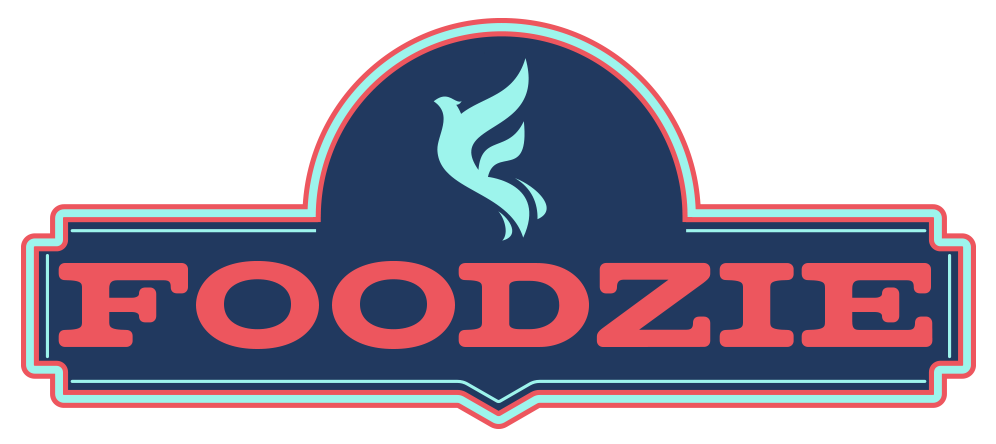Bloating is that uncomfortable sensation of a stomach that’s been stretched beyond capacity. The problem ranges from embarrassing—a visibly swollen stomach and gas escaping in the form of burping of flatulence—to painful.
But is bloating a sign of an underlying, undiagnosed condition? Does it signify that something more serious is going on?
Usually not. There are a lot of factors that can cause bloating, and most are easily prevented or treated with simple dietary or behavioral changes.

That said, if your bloating is not turned off by avoiding certain foods, or if it lasts longer than a few days at a time, it might be time to consult your doctor. See below for 17 causes of bloating, including a couple of serious conditions that could be indicated by chronic bloating, and other symptoms to watch for if you’re concerned.
1. Constipation
Constipation is defined as three or fewer bowel movements per week, and is also often marked by dry, hard, or difficult stools. It’s not uncommon. Most people have suffered bouts of constipation due to poor dietary choices or as a side effect of medication.
Food that has outstayed its welcome in the digestive system continues to break down, releasing more and more gas. That gas build-up is a common cause of bloating.
2. Overeating
Eating too much is another leading cause of bloating. Unfortunately, it’s also easy to do—especially if you’re eating too fast.
At its smallest, your stomach is about the size of your fist. The next time you sit down to a meal, compare your plate to your fist for some perspective. Your stomach will easily, temporarily stretch to accomodate what you eat, along with your small intestine and abdominal muscles.
Too much stretching, however, creates a bloated feeling.

3. Gastroparesis
Gastroparesis, also called delayed stomach emptying, is a condition that affects muscles in the stomach, preventing it from emptying properly.
Slow digestion, again, causes gas to build up. Enzymes in the digestive system continue to break down food and that decomposition releases gas.
Bloating is a very common symptom of gastroparesis, especially in women, and can be severe.
4. Small Intestinal Bacterial Overgrowth (SIBO)
SIBO is a condition in which excess bacteria, usually found in other parts of the body, collect and grow in the small intestine. It often occurs when digestion through the small intestine is slow, which means it is usually associated with other digestive conditions, such as IBS and celiac disease.
Those misplaced bacteria cause more fermentation to happen in the intestine, and—especially since they are usually present in conjunction with other handicaps—create gas build-up. The small intestine is relatively narrow, so it doesn’t take much to make it feel bloated.
5. Swallowing Air / Eating Too Fast
Eating too fast, talking with your mouth full, and even chewing gum after a meal, all increase the chances that you’re actually swallowing too much air while you’re eating.
That air gets trapped in your digestive system and makes you feel bloated.

6. Fat
Rich fatty foods are common causes of bloating because they take longer to digest. Fats take longer to digest than carbs or proteins, so they stick around in your stomach longer.
If you ate too much rich food, that full/bloated feeling will last longer than it does when you’re full of healthier foods.
7. Lactose Intolerance / Dairy
Many food intolerances can cause bloating, but lactose intolerance is one of the most common—and one with symptoms that frequently include bloating.
Many people suffer from this dairy intolerance, because their bodies do not produce enough of an enzyme called lactase. Lactase breaks down a type of sugar found in dairy products, called lactose.
Lactose that doesn’t get broken down in the stomach, passes through to the colon. The bacteria in the colon attempt to break it down, causing fermentation, which—as we well know by now–releases gas. Excess gas (and water retention, in this case) in the colon create that symptom of bloating.

8. Soda
Have you had more soda than normal, lately? That could be why you’re feeling bloated. A lot of foods cause people to feel bloated, but soda contains two offenders: carbonation and artificial sweeteners.
Carbonation is created by gas, and that same gas is easily trapped in the digestive system. Artificial sweeteners, especially those found in diet sodas, are known to cause bloating and gas themselves.
9. (Other) Gas
Gas can build up in your digestive system for lots of reasons, in addition to those listed so far. Everyone’s body reacts differently to different foods and medications.
Cruciferous veggies, for example—like broccoli, cauliflower, and cabbage—give many people gas, which causes bloating.

If nothing else on this list fits as a possible cause of your bloating, it might be time to start a food journal. Try omitting, or focusing on, certain food items that you suspect might be causing the discomfort. Write down what you ate that made you feel better or worse, and you may soon discover the culprit.
At the same time, you can add a supplement to your diet to help ease bloating, if it’s the result of poor food choice. Digestive enzyme supplements, for example, help break down complex carbs that frequently cause slow digestion and gas build-up.
Note that normal, food-induced gas build-up that leads to bloating usually resolves in a few hours. If your discomfort lasts longer, it might be time to talk to a doctor.
10. Excess Salt / Water Retention
Bloating isn’t always related to gas build-up. Sometimes that bloated feeling is actually caused by water retention.
And salt increases water retention—especially around your abdomen. People who eat high-salt diets report more instances of gastrointestinal bloating.

11. Irritable Bowel Syndrome (IBS)
Many people who struggle with Irritable Bowel Syndrome report bloating as a common symptom, especially women.
It is widely assumed that excess gas is the reason why IBS patients experience bloating—constipation is another common symptom, after all—but tests to that end have not been conclusive. For now, the specific reason that IBS causes bloating is debatable, but the fact that it does, is not.
12. Celiac Disease
Celiac disease is a rare, autoimmune condition that attacks the small intestine when gluten is consumed. This causes serious damage to the small intestine.
There are a variety of symptoms associated with celiac disease, and one of the most common is bloating. The immune system’s response causes, among other consequences, inflammation of the small intestine, which produces that bloated feeling.
It’s important to note that gluten can also cause gas build-up and bloating in people who do not suffer from celiac disease. If you notice that you only feel bloated after eating gluten, but have no other symptoms of celiac disease, you are more likely to have a gluten intolerance. If you think you suffer from celiac disease, though, talk to your doctor about being tested.
If you think that a food intolerance, like gluten or dairy, is the cause of your bloating, you can also start with a home test like Everlywell’s food sensitivity kit. This kit is delivered to your door, is very easy to self-administer, and checks your tolerance to about 96 types of food, including dairy and gluten.

13. Infection
In some cases, recurring or persistent bloating can be a sign of an illness or a more serious condition, caused by infection. Some common digestive infections include:
- Norovirus
- Rotavirus
- Escherichia coli bacteria
- Helicobacter pylori bacteria
Norovirus or rotavirus—often labeled “food poisoning” or a “stomach bug”—are unpleasant, but usually pass in a week (with plenty of rest and fluids). Nausea and diarrhea are the most common symptoms, but bloating can also occur.
The bacterial infections can be more serious.
E. coli often causes short-term “food poisoning” stomach problems and passes quickly. Some strains of E. coli, however, produce a toxic can Shiga, which damages intestinal lining. It can lead to seizures and even adult kidney failure.
H. pylori presents as bloating—due to inflammation in the intestines—nausea, and stomach pain. It is not an uncommon infection, but in some cases it can cause stomach ulcers, chronic gastritis, and stomach cancer.
14. Inflammatory Bowel Disease (IBD): Crohn’s Disease or Ulcerative Colitis
IBD is an umbrella term that categorizes two different digestive disorders: Crohn’s disease and ulcerative colitis. Both conditions are marked by inflammation of the digestive system.
That inflammation can lead to digestive complications, including constipation, which cause gas build-up and bloating. Many Crohn’s sufferers are also at increased risk of more severe digestive complications—such as ulcers or SIBO—which also cause bloating in their own right.
15. Menstruation
Most women experience some sort of premenstrual symptoms in the days leading up to a period, and bloating is not uncommon.
PMS bloating is caused by changes in estrogen and progesterone levels that start about a week before the onset of a period. These hormone changes cause bloating in two ways:
- Rising estrogen levels affect the stomach and small intestine, resulting in (among other effects) the build-up of gas in the intestines.
- Changes in both hormones can also cause the body to retain more salt and excess water. Cells become swollen with water, making bloating even worse.
16. Liver Disease
Very rarely, bloating can be a sign of a more serious condition, such as liver disease. When the blood vessels around the liver suffer increased pressure, they retain more fluid, which presents as bloating.
Bloating that’s a sign of liver disease, however, is bloating that doesn’t go away with dietary changes, and that lasts for a couple of weeks. You will also notice other symptoms of liver disease.
17. Ovarian Cancer
Ovarian cancer is not common, but it is difficult to recognize. And bloating is one of the first symptoms that many women identify and raise an alarm about.
Bloating related to ovarian cancer is usually caused by ascites, or a fluid build-up in the abdomen. Ascites form when the cancer spreads to the abdomen lining, or when the cancer starts to block the lymphatic system.
Unfortunately, while bloating is one of the first symptoms of ovarian cancer that most women recognize, it is usually indicative of a more developed condition. It’s important to be familiar with early warning signs, and get regular exams, if you are at risk.
What About Indigestion?
Indigestion, or dyspepsia, is a symptom itself, not a disease or condition. The term “indigestion” describes abdominal discomfort including pain, bloating, gas, burning in the upper abdomen, nausea, and an acidic taste.
If you’re feeling bloated, you have indigestion. Don’t let anyone tell you that indigestion is causing bloating, or you’ll go around in circles forever without ever getting to the root cause of your discomfort.
When to See a Doctor for Bloating
Bloating is uncomfortable, even painful at times, but usually passes in a few hours and can be prevented or treated with dietary changes. If your bloating persists, and especially if you have signs of other ailments, it’s time to contact your doctor.

- Liver disease — Other signs of a distressed liver include yellowing eyes, chronic fatigue, and itchy skin. You may be at greater risk of developing liver disease if you consume a lot of alcohol, are overweight, or have a family history of liver disease.
- Ovarian cancer — Early warning signs of ovarian cancer often include abdominal or pelvic pain, early satiety (feeling full quickly), and frequent urination.
As always, trust your gut. If your bloating becomes chronic or long-lasting, and isn’t remedied by diet or behavioral changes, call your doctor.
Common Causes of Bloating: Final Words
As you could see, there could be many potential causes of bloating. However, they’re usually not serious issues. A bloated tummy is a nuisance, but that’s often all it is. If you’re feeling bloated, chances are good that it was something you ate or the way you ate. If it is the result of an underlying condition, it’s probably a minor one that is easily treated by paying attention to your diet.
If you notice that you usually feel bloated after eating, make sure to check out “How to Prevent or Reduce Bloating and Gas After Meals [Top 12 Secrets]” to learn how you can figure out which foods are the problem—and what to do about it.
[Updated April 2020]
